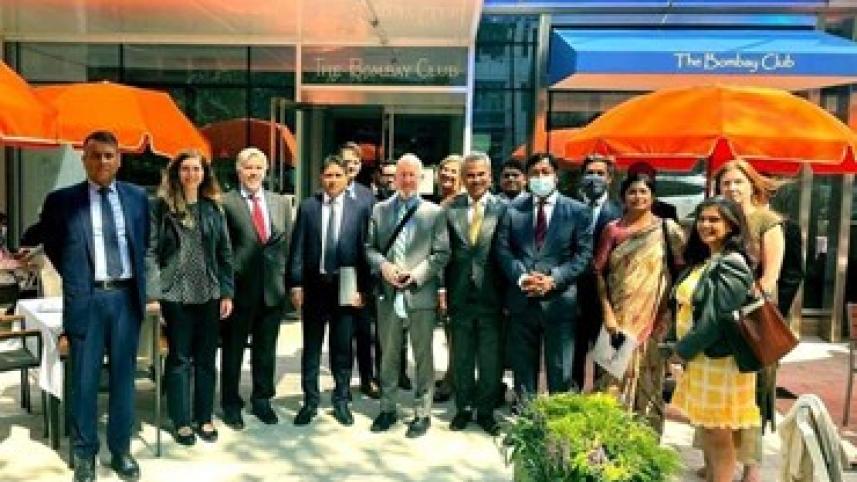BGMEA urges US buyers to give fair prices, cut tariff

The garment makers have urged the US buyers for fair prices and reduction in tariff for apparel products from Bangladesh.
The call came at a roundtable titled "Seven years after Rana Plaza: Who is doing what?" organised by the Bangladesh Embassy in Washington DC on 10 today.
Addressing the programme, Faruque Hassan, president of Bangladesh Garment Manufacturers and Exporters Association (BGMEA), emphasised the need for a smoother and more sustainable supply chain and sourcing and requested the buyers to minimize multiple auditing of the factories to reduce cost on the factory owners.

Senior US government officials including Christopher Wilson, assistant US Trade Representative for South Asia; William Jackson, assistant USTR for Textiles and Jennifer Larson, director for South and Central Asia of the US Department of State; Maureen Haggard, director for Democracy, Human Rights and Labour of the US Department of State; BGMEA Vice President Miran Ali, Ambassador Teresita Schaffer from the McLarty Associates, representatives of US-Bangladesh Business Council, American Apparel and Footwear Association, Walmart, Target, as well as senior officials of the Bangladesh Embassy participated in the roundtable.
Bangladesh officials and BGMEA leaders briefed the US government and relevant stakeholders on the ongoing efforts to improve factory safety and workers' welfare in the readymade garment industry in Bangladesh and encourage more US import of Bangladeshi readymade garments.
US is a major destination for RMG exports from Bangladesh with the annual export now around $6 billion. the US suspended Bangladesh from GSP in June 2013 following the Rana Plaza collapse in 2013.
Bangladesh has been calling for the US to restore the Generalised System of Preferences, but the latter has yet to make any announcement on this.
Meanwhile, the RMG makers say their operational costs have gone up and have been demanding fair price and reduce tariff costs.



 For all latest news, follow The Daily Star's Google News channel.
For all latest news, follow The Daily Star's Google News channel.
Comments